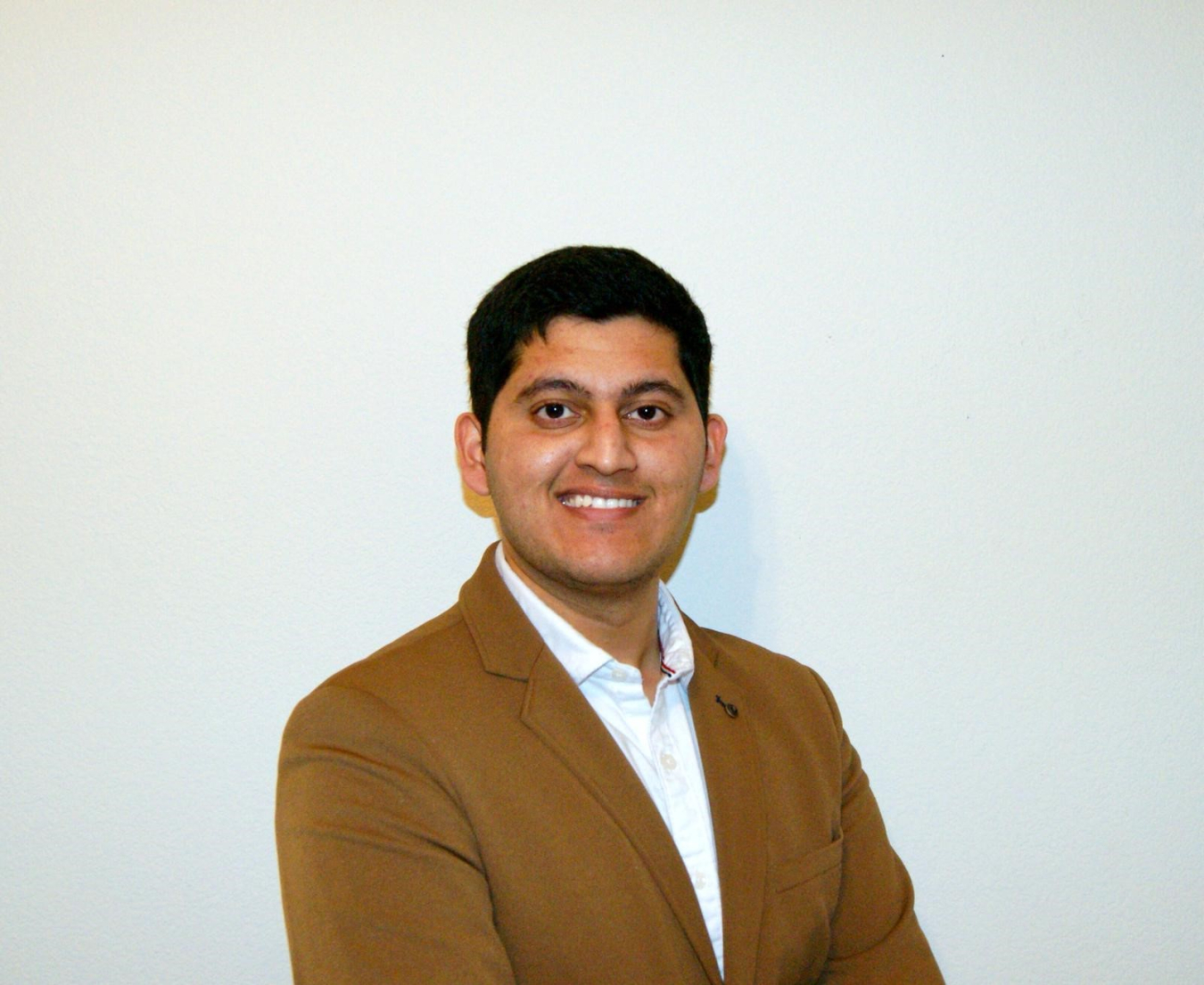In March 2019, Pochampally joined the EM Minority Serving Institutions Partnership Program (MSIPP), where he worked on technologies to detect and inspect nuclear environments, as well as another project on water remediation.
Office of Environmental Management
November 8, 2022Suraj Venkat Pochampally is a doctoral student and graduate research assistant in the Department of Mechanical Engineering at the University of Nevada, Las Vegas. In March 2019, Pochampally joined the U.S. Department of Energy Office of Environmental Management (EM) Minority Serving Institutions Partnership Program (MSIPP), where he worked on technologies to detect and inspect nuclear environments, as well as another project on water remediation. In this Q&A with EM Update, Pochampally reflects on how the EM MSIPP has shaped his career goals to work on solutions to wastewater and groundwater contamination problems.

How did you learn about the EM MSIPP?
I first started working on the EM MSIPP project in March 2019, when my advisor, Dr. Jaeyun Moon, asked me to work on a collaboration project with another materials lab supervised by Dr. Kwang Kim. I was excited when I read the description of the project that focused on fabricating a flexible robotic platform for detection and inspection in nuclear environments. Working on that project, I gained knowledge about nuclear environments and the wide range of problems associated with them.
In January 2020, I started working on another EM MSIPP project: a water remediation project supervised by Dr. Moon and Dr. Erica Marti titled “Green and Cost-effective Remediation of Organic Contaminants in Subsurface Environments; Production and Modification of Biochar from Local Feedstocks, Pilot-scale testing with Enhanced and Massively-produced biochar.” This project dealt with the treatment of trichloroethylene (TCE) and tetrachloroethylene (PCE) from groundwater in collaboration with the Savannah River National Laboratory. Soon, I was the lead Ph.D. student for this project, working with a diverse group of students, and that gave me a lot of exposure to develop myself into a skilled researcher.
How is EM MSIPP helping you work on your career goals?
Working in the EM MSIPP has done wonders for my professional and academic life. By working on this project, I have had the opportunity to interact and mentor various researchers and students, improve my research and engineering skills, attend various conferences to learn about groundbreaking research that is being conducted by various skilled researchers around the world and network with several academic and industry professionals.
By working on the EM MSIPP-funded project on organic contaminant remediation, I have gained a lot of knowledge and experience on carbon adsorbents and water treatment, and I would like to use this knowledge to work on the wastewater and groundwater contamination problems in the environment after I finish my Ph.D. By working on this project, I have also had the opportunity to work on authoring two manuscripts that I plan to publish in high-impact factor journals. I am working on the final review for the first manuscript and I am on track to submit it to a journal this month. My colleagues and I are almost finished with the second manuscript and should publish it by the end of this year.

What do you enjoy most about EM MSIPP?
I loved working with a diverse group of students as part of the research group. I have had the opportunity to mentor 10 students over the three years that I have been a part of the EM MSIPP research project. That experience has not only improved my mentorship abilities but also improved my ability to understand students and their problems. I also loved being a part of the EM MSIPP first annual Competitive Research Award Workshop held in Augusta, Georgia in August 2022, and had the opportunity to meet the people who made this program possible.
What goals have you set for yourself after graduation? What do you hope to do?
I plan to graduate with my Ph.D. in mechanical engineering soon and I would like to continue being associated with DOE and its programs. That would only be possible if I work as a post-doctoral scholar at one of the national labs. There are many DOE research labs in the U.S., like Pacific Northwest National Laboratory and Savannah River National Laboratory, that are equipped to conduct groundbreaking research in material sciences, and I would absolutely love to work in one of those labs as a postdoctoral scholar.
I am putting all my efforts into becoming a skilled researcher and I believe that I have a suitable educational background, gained from my research experience working in the EM MSIPP for the past three years, to accomplish my goals. I hope that the connections I made in the past three years while working on the EM MSIPP project will help me greatly in achieving this.
Anything you’d like to add about EM MSIPP? Final thoughts?
I would like to thank everyone related to the EM MSIPP that made it possible, and I hope to be a part of the program even after I graduate. I would like to add that it would be an even greater help if EM MSIPP could start offering internship or fellowship opportunities to international graduate students in the program, where the students can visit and work in one of the national labs and learn about the research going on there and the work culture. This will make it easier for them to continue in the EM MSIPP project even after they graduate, in the form of post-doctorates and full-time jobs.
To receive the latest news and updates about the Office of Environmental Management, submit your e-mail address.

